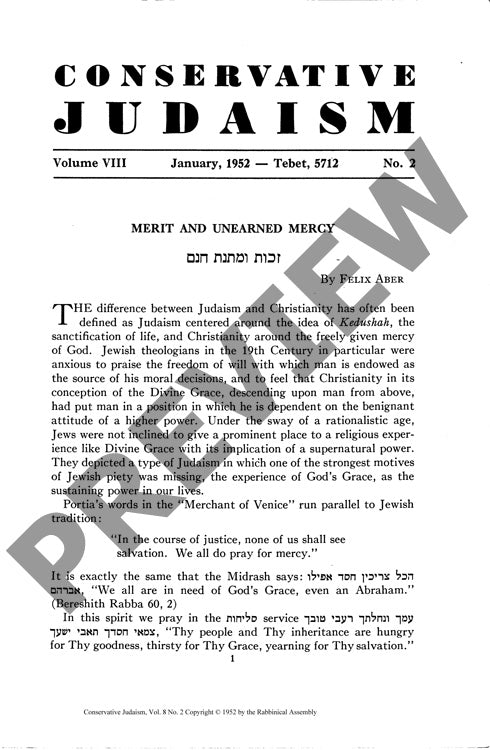Merit and Unearned Mercy
Couldn't load pickup availability
Jewish theology weaves together two seemingly contradictory principles: the merit earned through human effort and the unearned grace bestowed by divine mercy. While Judaism is often characterized as purely merit-based in contrast to Christianity's emphasis on grace, extensive analysis of rabbinic literature, Midrash, and Talmudic sources reveals a more complex theological framework. Through close textual examination of Hebrew and Aramaic sources, including liturgical texts, the concept of zekhut (merit) emerges as more than a forensic accounting of good deeds—it functions as accumulated spiritual capital that transcends individual achievement. The research traces how rabbinic sources balance individual moral responsibility with divine grace, particularly through concepts like zekhut avot (merit of the fathers) and matnat chinam (unearned gifts). This analysis demonstrates that Jewish tradition rejects both religious complacency and purely transactional approaches to divine-human relationships. Rather, it presents a nuanced synthesis wherein human merit creates worthiness for divine grace, while ultimate salvation depends on God's freely given mercy, challenging simplified distinctions between Jewish and Christian theological frameworks.

More Information
-
Physical Description
-
Publication Information
Published 1952
ISBN
-
Publication Credits
Felix Aber

